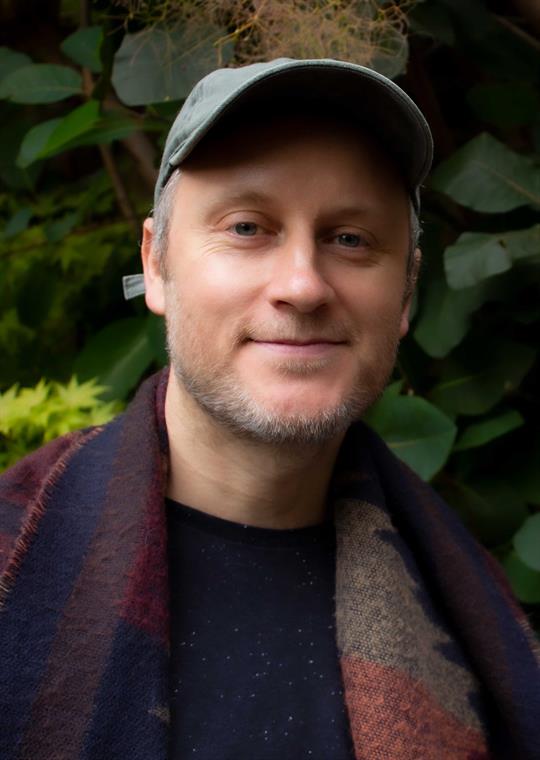Dr Mark Peter Wright
Title
Reader in Critical Sound Practice
College
London College of Communication
Email address
Tags
Researcher Research

Biography
Dr. Mark Peter Wright is the Director of CRiSAP (Creative Research in Sound Arts Practice) and Reader in Critical Sound Practice at the London College of Communication. His monograph "Listening After Nature: Field Recording, Ecology, Critical Practice" (Bloomsbury, 2022) contributes new debate to the practice of field recording by combining analysis from sound studies and the environmental humanities. His latest book explores the process of sound playback to develop a critical listening practice (Bloomsbury, 2027).His research is practice-based and investigates the relationships between sound, technology, humans and environments. This set of relations is approached iteratively across publication (books, journals, media), practice (exhibitions, radio, performance) and pedagogy (teaching, workshops, labs); it covers four key areas:
--Sound and Site: How does envionmental sound convey complex forms of meaning, evidence and affect? This theme situates itself within the discourses of sound studies, post-colonial literature and the environmental humanities. It amplifies sonic knowledge within contextual debates from site-specific art histories.
--Aural Cultures and Critiques: Who has the historical right to record and for whom is the audio document conserved? This theme situates itself within archival and ethnographic practice and discourse. It investigates the power and poetics of fieldwork and surfaces key ethical debates in relation to consent, agency and the documentary form.
--Technology and Ecology: How can technology be practiced in an eco-sensitive and sustainable way? This theme situates itself within media ecological discourse and studies of infrastructure and waste. It investigates where sonic/digital media comes from and where it might end up: highlighting technology’s impact on natural resources, human and environmental health.
--Listening Practices: What type of pedagogic scenario does a sonically attuned practice demand? This theme situates itself within education, learning and plural ways of hearing. It investigates the potential for listening as a practice-based method for sensing and sense-making within the studio, classroom or outdoor site.
Wright teaches and supervises at undergraduate and postgraduate levels and has significant experience in designing and leading lectures, workshops and seminars. He has delivered extensive public events for organisations and institutes in the UK and abroad. Conference papers, keynotes and invited talks have been presented at Harvard University (USA), University of Copenhagen (DK), Critical Media Lab (CH), Oslo School of Environmental Humanities (NO), University of Stavanger (NO), Wellcome Collection (UK) and many more. His writing has been published in various anthologies (Routledge, Palgrave Macmillan, DPR Barcelona, Uniform Books). Peer reviewed articles have been published with Interference Journal, Leonardo Music Journal, Evental Aesthetics Journal, Sensate Journal, the Journal of Sonic Studies and many more.
As a practitioner, he has exhibited and performed widely in solo and group exhibitions at IMT Gallery, Platform A, MIMA, New York Public Library, The Showroom, Museum of Contemporary Art Rome, Café Oto, Catalyst Arts, GV Art, Royal Academy of the Arts, TATE and Trinity House Square Dublin. In addition to his own practice-based research, he collaborates extensively. With Helena Hunter he works under the name Matterlurgy, combining art, science and technology projects across exhibition, performance and experimental co-labs. With Prof. Angus Carlyle he works on projects and performances that explore the relations of listening and recording, nature and aesthetics, site and studio. Between 2014-2021 he co-convened Points of Listening with Prof. Salomé Voegelin, a series of public events exploring listening and sound-making as a collaborative and artful form of pedagogy.
His practice has been recognised across various awards including being named the British Composer of the Year in Sonic Arts. He received the Outstanding Postgraduate Supervisor Award, UAL, in 2021.